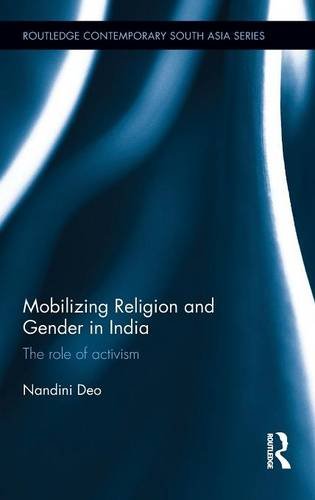

Most ebook files are in PDF format, so you can easily read them using various software such as Foxit Reader or directly on the Google Chrome browser.
Some ebook files are released by publishers in other formats such as .awz, .mobi, .epub, .fb2, etc. You may need to install specific software to read these formats on mobile/PC, such as Calibre.
Please read the tutorial at this link. https://ebooknice.com/page/post?id=faq
We offer FREE conversion to the popular formats you request; however, this may take some time. Therefore, right after payment, please email us, and we will try to provide the service as quickly as possible.
For some exceptional file formats or broken links (if any), please refrain from opening any disputes. Instead, email us first, and we will try to assist within a maximum of 6 hours.
EbookNice Team

Status:
Available5.0
36 reviewsReligious nationalists and women’s activists have transformed India over the past century. They debated the idea of India under colonial rule, shaped the constitutional structure of Indian democracy, and questioned the legitimacy of the postcolonial consensus, as they politicized one dimension of identity.
Using a historical comparative approach, the book argues that external events, activist agency in strategizing, and the political economy of transnational networks explain the relative success and failure of Hindu nationalism and the Indian women’s movement rather than the ideological claims each movement makes. By focusing on how particular activist strategies lead to increased levels of public support, it shows how it is these strategies rather than the ideologies of Hindutva and feminism that mobilize people. Both of these social movements have had decades of great power and influence, and decades of relative irrelevance, and both challenge postcolonial India’s secular settlement – its division of public and private. The book goes on to highlight new insights into the inner dynamics of each movement by showing how the same strategies - grassroots education, electoral mobilization, media management, donor cultivation - lead to similarly positive results.
Bringing together the study of Hindu nationalism and the Indian women’s movement, the book will be of interest to students and scholars of South Asian Religion, Gender Studies, and South Asian Politics.